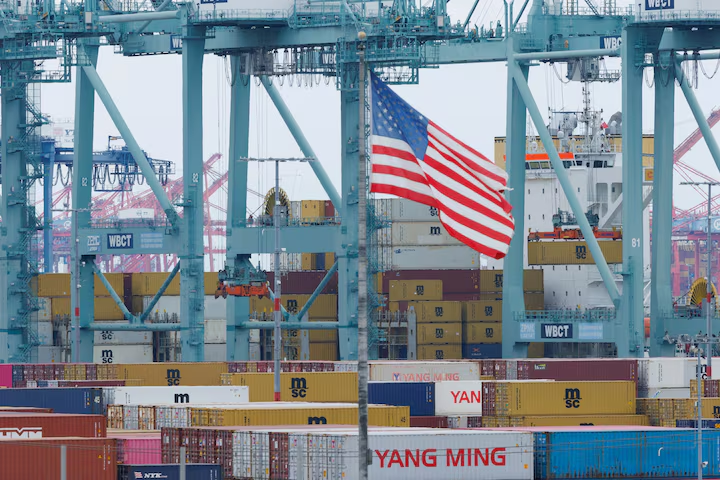Arbitration, as an alternative dispute resolution mechanism, is frequently chosen for its perceived efficiency and confidentiality. The American Arbitration Association (AAA) along with its international arm, the International Centre for Dispute Resolution (ICDR), offers services with the promise of a neutral forum for resolving disputes outside of traditional courtrooms. Despite these advantages, concerns have been raised regarding the potential for disadvantages and bias in the arbitration process.
Issues of bias may arise from the fact that arbitrators are not bound by the strict rules of law or judicial precedent that guide judges. Instead, they may bring their subjective interpretation to the proceedings, which could tilt the balance unfairly. Furthermore, the involvement of the AAA or ICDR does not shield the process from potential conflicts of interest, especially when arbitrators’ appointment may be influenced by repeat players or institutions with which they have prior relationships.
Additionally, the confidentiality that arbitration processes promise, though beneficial in protecting sensitive information, can also serve to shield instances of bias and procedural improprieties from public scrutiny. When such issues are kept away from the light of public discourse, the aggregate of repeated cases can reinforce systemic inequalities. Thus, while arbitration through entities like AAA-ICDR aims for equitable dispute resolution, the internal mechanics of the procedure may sometimes work against this objective, underscoring the importance of vigilance and transparency in the practice.
Overview of AAA-ICDR Arbitration
In the field of alternative dispute resolution, the AAA-ICDR framework is a prominent choice for its structured resolution process. The focus of this section is to elucidate the mechanisms of arbitration under the AAA-ICDR and to position it within the larger context of litigation and mediation.
Arbitration and ADR Mechanisms
The American Arbitration Association (AAA) alongside its international division, the International Centre for Dispute Resolution (ICDR), provide Alternative Dispute Resolution (ADR) services, which include arbitration and mediation. Arbitration under the AAA-ICDR is governed by a comprehensive set of arbitration rules, which delineate the procedure from initiation to final award. This process is binding and final, aiming to resolve disputes in a private and efficient manner.
Role of the American Arbitration Association and ICDR
The AAA is an established entity dedicated to aiding businesses, individuals, and government agencies in the resolution of conflicts outside the traditional court system. The ICDR is its international counterpart, focusing on cross-border disputes. They serve to:
- Administer dispute resolution proceedings.
- Provide a roster of impartial arbitrators.
- Develop and update arbitration rules to reflect best practices.
These organizations advocate for the effectiveness of arbitration as a dispute resolution method, highlighting its speed, privacy, and the specialized expertise of arbitrators in comparison to general judiciary bodies.
Comparative Analysis With Litigation and Mediation
| Feature | Arbitration with AAA-ICDR | Litigation | Mediation |
|---|---|---|---|
| Formality | Formal; follows specific rules and procedures. | Highly formal; follows court procedures and rules of law. | Less formal; flexible process guided by mediator. |
| Privacy | Private; confidential proceedings not open to the public. | Public; court records and proceedings are typically open. | Private; maintains confidentiality of disputing parties. |
| Timeframe | Generally faster than litigation. | Potentially lengthy due to court schedules and backlog. | Can be very quick, depending on the parties’ willingness. |
| Selection of Arbitrator or Mediator | Parties select arbitrators with expertise relevant to the dispute. | Judges are assigned; may not have specific expertise. | Parties select a mediator, often based on expertise and style. |
| Outcome | Binding decision; limited grounds for appeal. | Binding decision; subject to appeal. | Non-binding; parties retain control over the outcome. |
In comparing arbitration to litigation and mediation, it is evident that arbitration through AAA-ICDR offers a middle ground between the formality of court proceedings and the flexibility of mediation, while allowing for private, specialized, and binding resolution of disputes.
Critical Analysis of Arbitration Under AAA-ICDR
Arbitration under the American Arbitration Association-International Centre for Dispute Resolution (AAA-ICDR) presents aspects that merit a closer examination, particularly concerning the biases and impartiality of arbitrators, the cost implications for the disputing parties, and the efficiency and timeliness of arbitral decisions.
Assessment of Bias and Impartiality
Arbitrator Selection: The arbitrator’s role is pivotal in shaping the fairness and outcome of arbitration proceedings. Concerns are often raised about potential bias, especially when arbitrators are selected from a limited pool of candidates with certain professional ties, which may lead to questions about their impartiality. AAA-ICDR has procedures in place intended to mitigate such risks, but the effectiveness of these measures can be variable.
Disclosure Requirements: The AAA-ICDR mandates that arbitrators disclose any circumstances likely to give rise to justifiable doubt regarding their impartiality or independence. However, there have been instances where the depth and transparency of these disclosures have been questionable, casting doubt on the neutrality of the arbitral tribunal.
Evaluation of Cost Implications
Arbitration Fees: Costs associated with AAA-ICDR arbitration can be substantial. They include arbitrator compensation, administrative fees, and expenses related to facilities and support services. For some parties, especially smaller entities, these costs may be a deterrent to accessing arbitration as a means of resolving disputes.
Cost Allocation: In some cases, the final award may include a decision on the allocation of arbitration costs, which could lead to significant financial implications for the losing party. The predictability of cost allocation is not always clear, adding a layer of risk in choosing to arbitrate under AAA-ICDR.
Efficiency and Timeliness of Arbitral Decisions
Case Management: AAA-ICDR prides itself on efficient case management and timely resolution of disputes. However, the complexity and specific circumstances of a case can lead to delays. While the AAA-ICDR has tools and rules intended to streamline the process, actual timeframes can vary widely.
Expedited Procedures: The AAA-ICDR rules provide for expedited procedures intended to bring about swift resolution for certain types of disputes. Yet, the application of these procedures can be inconsistent, and on occasion, they may not significantly reduce the timeline of arbitral proceedings.
By scrutinizing the above aspects of arbitration under AAA-ICDR, parties can better understand the potential challenges they may face in the arbitration process. These factors should be carefully considered when electing to resolve disputes through AAA-ICDR arbitration.
Specific Challenges in Key Industries
Arbitration in key industries faces unique challenges, particularly in the contexts of the COVID-19 pandemic, construction, energy, and intellectual property. The nuances and complex nature of these sectors often require specialized knowledge and have been affected by the pandemic in distinct ways.
The Impact of COVID-19 on Arbitration
Construction and energy sectors have experienced significant disruptions due to the COVID-19 pandemic. Sudden lockdowns and restrictions have led to delays, force majeure claims, and contractual disputes. Arbitration in these sectors has had to adapt by incorporating virtual proceedings and addressing complex jurisdictional issues as the parties involved may be operating under different COVID-19 related protocols.
- Disruptions: Contractual delays, force majeure claims
- Adaptations: Virtual proceedings, jurisdictional complexities
Arbitration in the Construction and Energy Sectors
In the construction and energy sectors, arbitration is often chosen for its technical expertise and confidentiality. However, the complexity of projects in these sectors can result in lengthy and expensive arbitration processes.
- Construction sector: Disputes involve large-scale projects; require technical expertise
- Energy sector: Disputes may arise regarding contracts, regulatory compliances, and investments
Intellectual Property Disputes through Arbitration
Arbitration involving intellectual property (IP) issues demands arbitrators with specific IP expertise. The stakes are high as decisions can affect patent rights, trade secrets, and significant financial interests. Healthcare, being reliant on IP for medical advancements, is particularly affected.
- Necessity: Specialized arbitrators with IP expertise
- Stakes: Impact on patent rights, trade secrets, investments in healthcare research
Innovations in Arbitration Procedure
Arbitration procedures are evolving with the integration of technology, which enhances both accessibility and the efficiency of dispute resolution processes.
Technology Adoption and Virtual Hearings
Recent advancements have seen the American Arbitration Association-International Centre for Dispute Resolution (AAA-ICDR) implement sophisticated technology-based solutions. Virtual hearings now leverage digital platforms to conduct arbitration sessions, eliminating geographical barriers. Electronic filing systems and digital case management tools have become standard, allowing for streamlined communication and documentation handling.
- Key Technologies Used:
- Video conferencing tools
- Electronic document management systems
- Online scheduling platforms
Cybersecurity and Privacy in Online Dispute Resolution
Cybersecurity measures are critical in preserving the integrity of arbitration proceedings, especially when sensitive information is exchanged electronically. The AAA-ICDR has developed protocols to protect the confidentiality of the parties involved. Privacy concerns are addressed through encryption, secure data storage, and strict access controls.
- Cybersecurity Initiatives:
- Use of end-to-end encryption for virtual hearings
- Regular cybersecurity audits
- Training programs for arbitrators on data privacy
.With the escalation of online activities, such protections are paramount to maintaining trust in online dispute resolution mechanisms.








